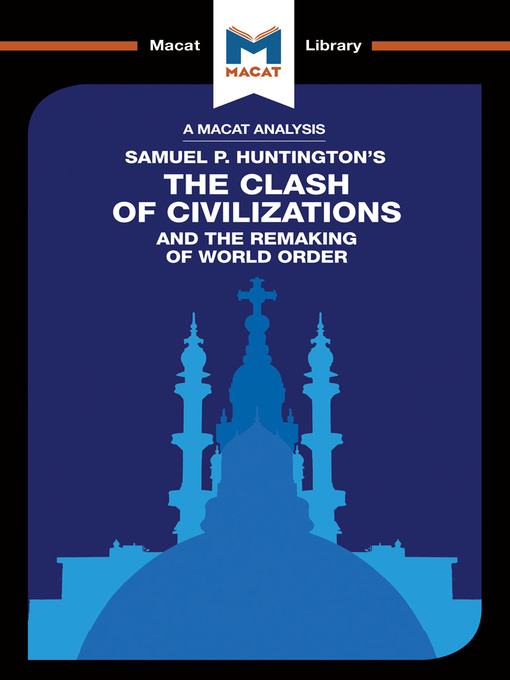
A Macat Analysis of The Clash of Civilizations and the Remaking of World Order
The Macat Library
کتاب های مرتبط
- اطلاعات
- نقد و بررسی
- دیدگاه کاربران
نقد و بررسی

The next wave of political confrontations will not be those of princes or nations, not focused on ideology or economics, but great clashes centered on cultures--a hammering of seven or eight distinct and powerful civilizations. The impacts will be felt most strongly on the edges (geographical fault lines) and will be very evident where they touch Islam. Each civilization is characterized by internal commonalities of history, language, culture, tradition, and religion--Huntington exposes the modern world with great erudition and insight. Paul Boehmer's reading is adequate; his voice sounds young, but his cadence is deliberate. This is a tape for learning. D.R.W. (c) AudioFile 2003, Portland, Maine

November 4, 1996
Huntington here extends the provocative thesis he laid out in a recent (and influential) Foreign Affairs essay: we should view the world not as bipolar, or as a collection of states, but as a set of seven or eight cultural "civilizations"--one in the West, several outside it--fated to link and conflict in terms of that civilizational identity. Thus, in sweeping but dry style, he makes several vital points: modernization does not mean Westernization; economic progress has come with a revival of religion; post-Cold War politics emphasize ethnic nationalism over ideology; the lack of leading "core states" hampers the growth of Latin America and the world of Islam. Most controversial will be Huntington's tough-minded view of Islam. Not only does he point out that Muslim countries are involved in far more intergroup violence than others, he argues that the West should worry not about Islamic fundamentalism but about Islam itself, "a different civilization whose people are convinced of the superiority of their culture and are obsessed with the inferiority of their power." While Huntington notes that the war in Bosnia hardened into an ethno-religious clash, he downplays the possibility that such splintering could have been avoided. Also, his fear of multiculturalism as a source of American weakness seems unconvincing and alarmist. Huntington directs the John M. Olin Institute for Strategic Studies at Harvard.

























دیدگاه کاربران